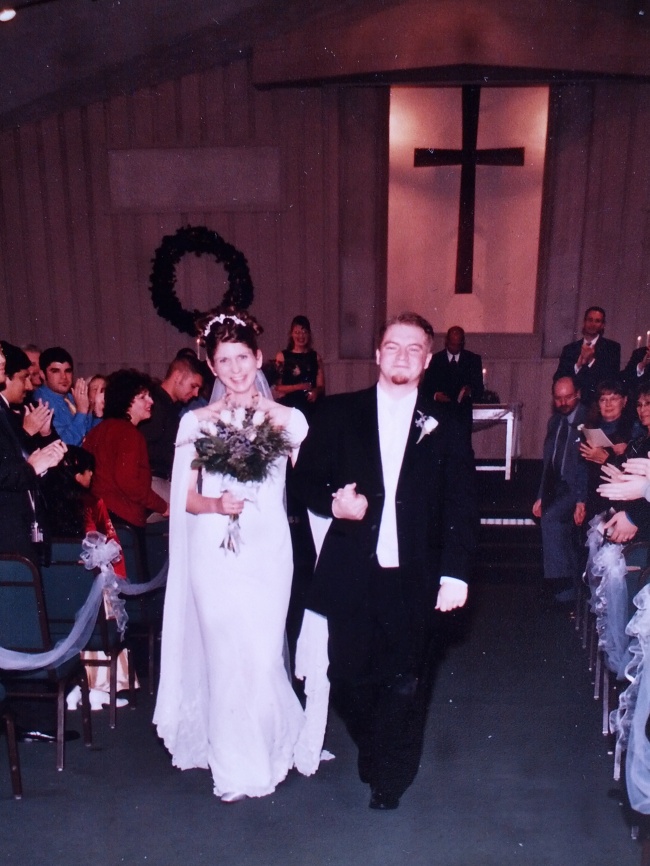A common struggle for those in ministry is to trust in self-effort for results instead of remembering that ONLY God moves minds and hearts and builds movements of people for His glory. With self-reliance often comes a focus on tasks instead of people, and numbers instead of changed lives. We have noticed recently that several of our students seemed to be struggling with this task mentality, and they have therefore been feeling weary very quickly, and just wanting to pull away from ministry. Jeremiah and I don’t like to put pressure on people, but we do want to help students to figure out the root behind their struggles. Often removing what feels like the outward cause is not what fixes the problem, particularly when there is a deeper heart issue in play.
I often focus in my discipleship on applying the gospel to every part of our lives, remembering that our maturity and growth come from the Lord, and that his grace and mercy are new every morning. Especially when I am working with student leaders, I like to remind them that what qualifies them to do the work of ministry is a heart that fully seeks the Lord. That is more important than skills, which only truly bring God glory when our hearts are also towards Him. (I Chron 28:9-10)
If we start on the path of seeking God first and foremost, I believe our humility, sense of peace and joy, and our hunger for God will keep growing and growing as we mature spiritually. I am thankful for my journey so far, and for how God stirred up in me a desire to know Him more. He continues to show me that I am happiest when I am seeking to know Him more and walking in honesty and humility before Him. A verse I love is Philippians 1:6, which says “And I am sure of this, that He who began a good work in you will bring it to completion at the day of Jesus Christ.” What good news that God is still not done with me, and has more good in store.
My belief that a heart issue involved in our struggles stems from my own story. As I have spent time thinking about how to encourage our students, I have reflected on my own story in college. There was a dramatic shift that happened in my ministry life between my Junior and Senior years; it was a key point where I realized that God’s grace was not just for that moment of trusting in Him for salvation, but for my daily life—and I was able to receive God’s grace in my process of spiritual growth, not trying to be perfect, but pointing others to Christ through acknowledging my weakness and dependence upon Him. It was amazingly freeing and changed my guilt to joy and hope.
Before the change, I consistently felt like I was not doing enough and that I must be disappointing God and others. I felt burned out on ministry because it felt like it was something I was “supposed” to do. People quickly annoyed me, and I wished I could just do my studies and not have to think about it. I hit a place of burn out each quarter, and just didn’t feel a sense of the deeper “joy” in my life that I was pretty sure followers of Christ were supposed to have independent of circumstances.
I knew something was wrong, but I didn’t know how to get out of my cycle of frustration and guilt. But it was through some good friends—who pointed out that I needed to stop being so defensive about everything and acknowledge my need for God and his grace and strength—that the Holy Spirit finally penetrated my heart with the truth. It is somewhat ironic that acknowledging my brokenness is what allowed me to see the wholeness I already have in Christ. It was acknowledging my self-focus that allowed me to shift my eyes to the one who truly knows me. It was acknowledging my inability to make things right on my own that brought me true peace and hope.
First and foremost, I had to see my selfishness and pride as sin. I had to acknowledge that I could not keep a right standing before God with my effort and work, which result in guilt and frustration. Instead, I have to continue to rely on Christ for my sufficiency and life. I find wholeness when I look to Christ for that, and point others to Him as well, because then I stop trying to prove that I am not still broken. Instead, I am free to be a broken person, alongside other broken people, clinging to the one who has made me right with God in Christ and who will make me whole in every way in the future, by his mercy and to His glory.
After this shift that God worked in my heart, I was able to approach ministry and life differently. I remember consciously deciding to see people as more important than my tasks and accomplishments, and I was willing to sacrifice my time and energy, even if it meant losing some sleep and alone time. I began to love the small group of women that I led Senior year, and I was no longer drained by all the brokenness in the girls because I knew it was God who could change them, not me. I felt compassion for them because I knew I was not any different, but for God’s work in my life. It was like all the things I already knew finally penetrated my heart. The Holy Spirit moved in me—I cannot take credit. And that taste of God’s grace and truth in my own life sparked a hunger to know Him even more deeply.
My undergraduate career was just the start of that journey. God has continued to show me his love and grace in abundance. And I have definitely seen that my spiritual leadership is much more effective when I don’t try to look like I have it all together, but openly share my weaknesses and point to the One who has made me whole in Christ. Ten years of Marriage and nearly 8 years of being a mother have also continued to point out my sin tendencies and my continuing need for God’s grace as I journey with Him.
I am so thankful. I pray that I will continue to seek and serve God “with a whole heart and with a willing mind” (2 Chron 28:9), and find my joy and satisfaction only there.




